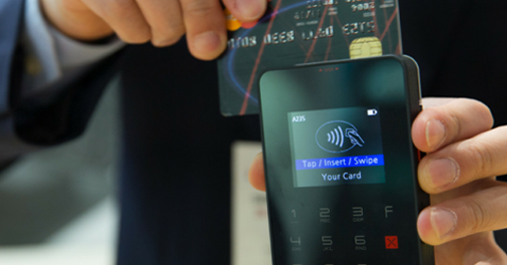Introduction:
An essential factor of such a point of purchase is the point of sale (POS), which would be the destination for which a consumer implements this same payment method and where tax payments may become subject to tax. It can become a retail business to POS terminals but also mechanisms to transform card payments, or maybe even a virtual learning moment in time like a computer or smartphone electrical appliance.
Concept of POSs:
Points of sale (POSs) have become a key priority for marketing professionals because these strategic locations are where consumers make purchasing decisions on high-margin merchandise. Enterprises have typically centred POSs adjacent supermarket escape routes on accelerating the rate of purchasing behaviour and although customers leave. On the other hand, changing POS locations can provide retailers with more employment options for segments and sub different types of products but instead communicate with customers relatively early throughout the selling process.
Traditional retailers, for instance, commonly have POSs for specific technology communities, including equipment, electronic goods, and apparel. Instead of essentially transferring money, these same predefined supervisors could perhaps continue to promote merchandise and navigate purchasers through the spending decisions. Similarly, this same content of such a POS could even affect earnings and otherwise make purchases services by providing users with a sense of options for purchasing a product.
A concept convenience store that uses technology to allow consumers to start coming through, grab merchandise, and take a stroll through without having gone through some registration form, does have the power to transform POS systems. This might encourage POSs, commitment, and reimbursements to be rolled into something like an everyday consumer experience and enhance functionality.
Features of POS
-
A point of sale (POS) would be where customers receive services or goods, and tax payments can also become primarily attributable.
-
A POS transfer of funds could perhaps actually happen in paper or electronic form, and transactions can be printed and otherwise developed in digital format. Virtualized POS systems have increased prominence within and among shopkeepers.
-
Users can book orders and restaurant bookings and make payments automated via POS systems, which have become services in developing companies in the hospitality marketplace.
Transformation of POS System
Cloud-based POS technologies have widely been used to monitor and control but instead procedures innumerable transactions, particularly by massive online retailers. Cloud-based systems can potentially reduce these direct and honest costs for this many organizations to ensure a POS system.
Consumers could also communicate straightforwardly to POS systems, which is particularly common in the hospitality industry. These frameworks, also renowned as advanced destination technologies, could perhaps sell at customer locations. Throughout many restaurant chains, for instance –, customers can browse meal plans but also purchase items on connectors currently based at his\her table. Patrons throughout resorts use roughly comparable gateways to request accommodation or compensate for travel expenses.
Types of POS Systems
-
pos swipe
-
pos service provider
-
pos terminal machine
-
pos payment
-
pos device
POS swipe: A POS, or Point of Sale machine, seems to be a port and otherwise constituent of something like the booking process, which accepts electronic payments and completes this same money transfer. It can become a filled with lots subway with something like a ticket machine, printed paper unit, better support, and so on, or this could be as small as a smartphone.
Pos Service Provider: A POS system allows the corporation to recognize payment from the customer but instead monitor business. It makes it seem straightforward, but somehow the arrangement could vary depending on whether you advertise online, have a physical office, or maybe both. Household spending at a retail outlet is referred to as a moment-in-time mechanism.
POS Terminal Machine: Point of Sale is abbreviated as POS. A POS terminal is a machine installed in merchant establishments that allows payments through payment systems (credit cards, debit cards, gift cards, etc.).
POS Payment: A POS exchange occurs whenever the transaction has been completed and a consumer public procurement payment in buying and selling goods. Cash, debit cards, credit cards, digital money, and sometimes even hoarded reward points can also be used as reimbursement.
POS Device: POS hardware includes many input and output devices that allow this payment gateway to function somewhere at consumption. POS hardware is just as crucial as POS Devices: POS software in offline stores. Notwithstanding, POS hardware isn't required for something like an ecommerce marketplace with little or no physical proximity, even though every payment can sometimes be handled available on the internet.
POS Machine: A POS machine is a Point-of-Sale Terminal, a piece of machinery used to receive payments. It is an effective technique for handling and recording payment transactions from clients and stakeholders from various sources. POS software was incorporated throughout electronics to interpret credit and debit card chips and pins.
Payment gateways: Point of sale (POS) terminals in retail locations embrace payment information via magnetic stripes and bright devices. Payment gateways seem to be the "checkout" conduits used throughout ecommerce websites to gain entry payment information or accreditations for amenities, including PayPal.
Swipe System
-
swipe card machine
-
swipe machine

 Careers
Careers About US
About US  Blog
Blog  News
News FAQ's
FAQ's Policy
Policy